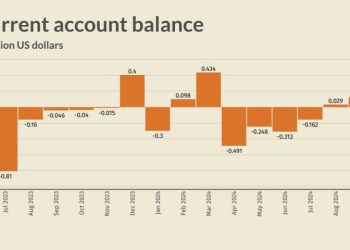BENGALURU, India – A searing heat wave in parts of southern Asia in April this year was made at least 30 times more likely by climate change, according to a rapid study by international scientists released Wednesday.
Sizzling temperatures of up to 45 degrees Celsius (113 degrees Fahrenheit) were recorded in monitoring stations in parts of India, Bangladesh, Thailand and Laos last month — which was unusually high for the time of year.
The climate change-fueled heat caused deaths, widespread hospitalizations, damaged roads, sparked fires and led to school closures in the region.
The World Weather Attribution group uses established models to quickly determine whether climate change played a part in extreme weather events. While the studies themselves are not yet peer-reviewed, which is the gold standard for science, they are often later published in peer-reviewed journals.
In Thailand, high temperatures mixed with humidity meant some parts of the country felt above 50 degrees Celsius (122 degrees Fahrenheit). In India, multiple regions across the country were affected with 13 people dying due to heat at a public event outside India’s business capital, Mumbai. The eastern Indian state of West Bengal closed all schools and colleges for a week.
The study found that temperatures were at least 2 degrees Celsius (3.6 degrees Fahrenheit) hotter in the region because of climate change.
If the global average temperature reaches up to 2 degrees Celsius warmer than it was in the late 1800s, the April heatwave could occur every one to two years in India and Bangladesh, the study said. Currently, the world is around 1.1 to 1.2 degrees Celsius (2 to 2.2 degrees Fahrenheit) warmer than pre-industrial times.
“We see again and again that climate change dramatically increases the frequency and intensity of heatwaves, one of the deadliest weather events there are,” said Friedrike Otto, a senior climate scientist at Imperial College London and one of the study’s authors.
Heat action plans — which are government-run and funded and aim to help people deal with extreme heat through awareness programs, training for healthcare workers and affordable cooling methods — need to be implemented faster in India and other heat-affected countries, the study’s authors said.
“Access to healthcare and to cooling solutions like fans and air conditioners is missing for a lot of the population in this region,” said Emmanuel Raju, director of the Copenhagen Centre for Disaster Research at the University of Copenhagen and another of the study’s nearly two dozen authors.
Raju emphasized that heat affects the poorest people and people whose work requires them to be outside — farmers, street vendors and construction workers — the most.
“It’s important to talk about who can cope and adapt to heat,” he said. “Many are still recovering from the pandemic, and from past heatwaves and cyclones, which leaves them trapped in a vicious cycle.”
The southern Asian region is considered among the most vulnerable to climate change in the world, according to various global climate studies. But India, the largest country in the region and the most populous in the world is also currently the third highest emitter of planet-warming gases.
Scientists say that drastic measures to reduce carbon dioxide emissions immediately is the only solution.
“Heat waves will become more common, temperatures will rise even more and the number of hot days will increase and become more frequent” if we continue to pump greenhouse gases into the atmosphere, said Chaya Vaddhanaphuti, a professor at the Chiang Mai University in Thailand and a co-author of the study.
Vimal Mishra, a professor at the Indian Institute of Technology in Gandhinagar who studies the region’s climate, acknowledged the importance of studies that help attribute specific weather events to climate change but said more action needs to be taken.
“We should go beyond attribution and talk about how climate change is affecting weather fundamentally and look at how we can develop climate resilience,” he said.









